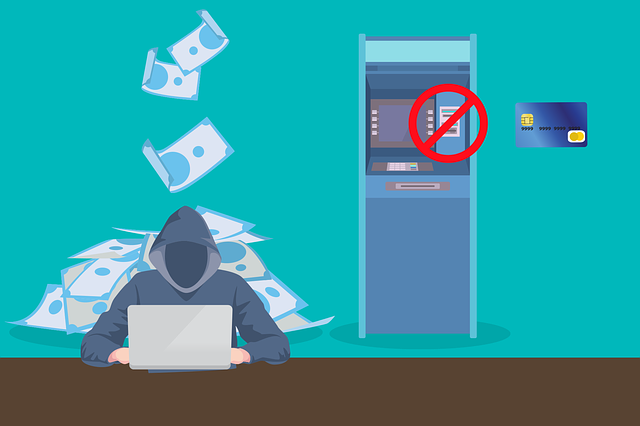Stay alert during rental searches by suspecting low prices and urgent decisions. Verify listings thoroughly, checking details and poster legitimacy. Avoid sharing sensitive info unless certain of a listing's authenticity. Research landlords and properties using public records, forums, etc. Understand lease terms and seek advice from trusted sources to avoid red flags. Check past tenant reviews online for firsthand accounts of potential scams. Don't feel pressured to act quickly; legitimate landlords follow standard procedures.
Staying one step ahead is crucial when it comes to securing your dream home. As a student, you’re particularly vulnerable to rental scams. This guide equips you with essential awareness tips to avoid falling victim to fraudulent listings. From recognizing red flags in ads to verifying landlord details and understanding lease terms, these strategies empower you to make informed decisions. Remember, knowledge is power – especially when navigating the complexities of finding affordable student housing. By following these steps, you can protect yourself from rental fraud and land a safe, comfortable space.
- Recognize Red Flags in Listings
- Verify Landlord and Property Information
- Understand Lease Terms Thoroughly
- Check Past Tenant Reviews
- Be Wary of Urgent Demands
Recognize Red Flags in Listings

When searching for a rental, it’s crucial to stay alert and recognize potential red flags that could indicate an attempt at avoiding rental fraud. Scammers often use enticing listings with too-good-to-be-true offers, so be wary of extremely low prices compared to market rates. They might also create fake listings or mimic legitimate ones, using stolen photos or copied descriptions from real properties. Another common tactic is the urgency to act quickly, pressuring tenants into making hasty decisions without thorough verification.
Always remember that reputable landlords and property managers won’t ask for upfront payments or personal information via unsecure methods like text or email. Be cautious of listings that lack detailed information about the property or the person posting it. Take your time to cross-reference details, contact local authorities if something feels off, and never provide sensitive data until you’re sure a listing is legitimate.
Verify Landlord and Property Information

When looking for a rental, one of the most effective ways to avoid rental fraud is by thoroughly verifying the landlord and property details. Start by asking for and cross-referencing information such as the landlord’s name, contact details, and property address. Double-check these against any online listings or advertisements to ensure they align. Be wary if there are discrepancies or if the landlord seems reluctant to provide clear and consistent data.
Additionally, research the property itself. Utilize public records, local real estate websites, or neighborhood forums to confirm the existence of the property, its condition, and any legal issues associated with it. This level of diligence can significantly reduce your risk of falling victim to a scam and help you make an informed decision when securing a rental space.
Understand Lease Terms Thoroughly

When looking for a place to rent, students often face numerous options and pressure to make quick decisions. However, in the excitement of finding a new home, it’s crucial to take a step back and thoroughly understand lease terms. Every lease is unique, containing various clauses that can protect or disadvantage tenants. Students should pay close attention to details like rental duration, payment methods, maintenance responsibilities, and termination policies.
Avoiding rental fraud starts with being an informed tenant. Scammers often use confusing language or hide important information. By understanding your rights and obligations, you can spot red flags and avoid falling victim to fraudulent lease agreements. Always read the fine print, ask questions when something isn’t clear, and don’t hesitate to seek advice from trusted sources or campus resources dedicated to student housing.
Check Past Tenant Reviews

Before signing any lease or handing over rent money, one simple yet powerful step can protect students from falling victim to rental scams: check past tenant reviews. Online platforms and social media groups dedicated to housing often serve as a goldmine of information. Reading firsthand accounts from previous tenants can reveal red flags that might be missed otherwise.
These reviews can provide insights into the landlord’s reliability, the condition of the property, and any unusual terms or demands made during the tenancy. By taking a few minutes to browse these forums, students can gain a clearer picture of potential scams and avoid becoming another statistic in the fight against rental fraud.
Be Wary of Urgent Demands

When searching for a rental property, be cautious of landlords or agents who create a sense of urgency. Scammers often try to rush tenants into signing contracts without giving them enough time to thoroughly review the terms and conditions. They might claim that the property will be snapped up quickly or that there are other interested parties, making you feel like you need to act immediately. Remember, genuine landlords don’t usually apply such high-pressure tactics. Take your time to consider all options and never feel compelled to make a decision on the spot.
Avoiding rental fraud involves staying alert and questioning unusual requests. If a landlord asks for immediate payment or demands that you wire money to a personal account instead of a secure depositary, it could be a red flag. Legitimate landlords typically follow standard procedures for verifying tenant information and processing rent payments. Always verify these practices and never share sensitive financial details unless you’re certain about the legitimacy of the request.














